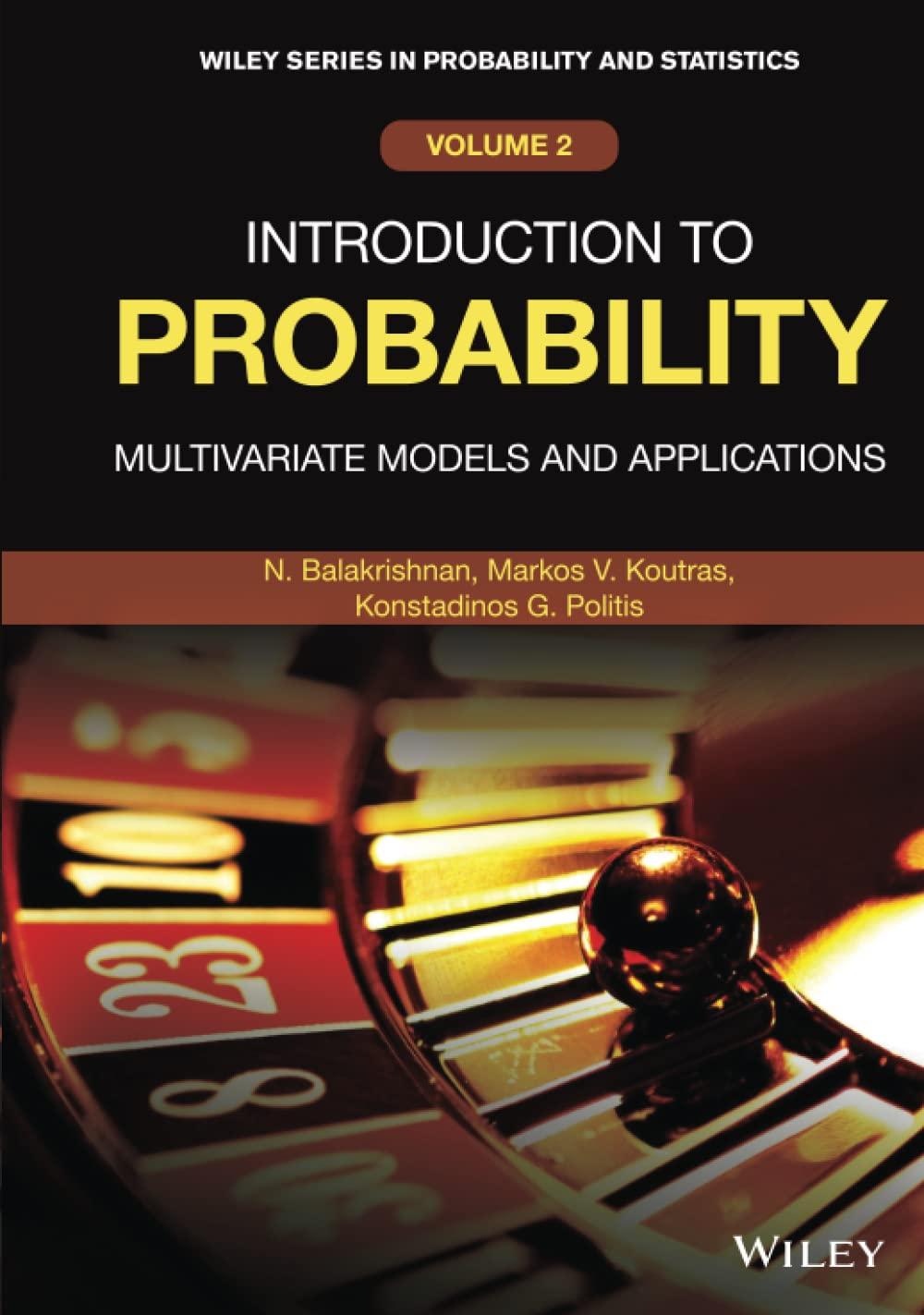We consider the random experiment of selecting a real number from the interval = (0, 1).
Question:
We consider the random experiment of selecting a real number from the interval
Ω = (0, 1). Such a selection corresponds to a nonterminating process during which we successively select the first, second, third, … decimal digit of the number.
For instance, the number π∕4 = 0.785 498… is produced by selecting the digits 7, 8, 5, 4, 9, 8,…, while the number 0.4 arises from the selection of the digits 4, 0, 0, 0, 0,…
We define the events An: the first n decimal digits of the number drawn are equal to 1, for n = 1, 2,…
(i) Show that the sequence of events {An}n≥1 is decreasing, i.e. An+1 ⊆ An, for any n = 1, 2,….
(ii) Assuming that all digits 0, 1, 2,…, 9 have the same probability of being selected at each step, verify that![]()
(iii) Using Proposition 1.6 (continuity of probability) show that the probability of selecting the number 1∕7 = 0.142 857… equals zero. Observe that the same is true for every real number in the sample space Ω = (0, 1).
Step by Step Answer:

Introduction To Probability Volume 2
ISBN: 9781118123331
1st Edition
Authors: Narayanaswamy Balakrishnan, Markos V. Koutras, Konstadinos G. Politis






